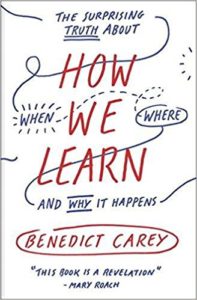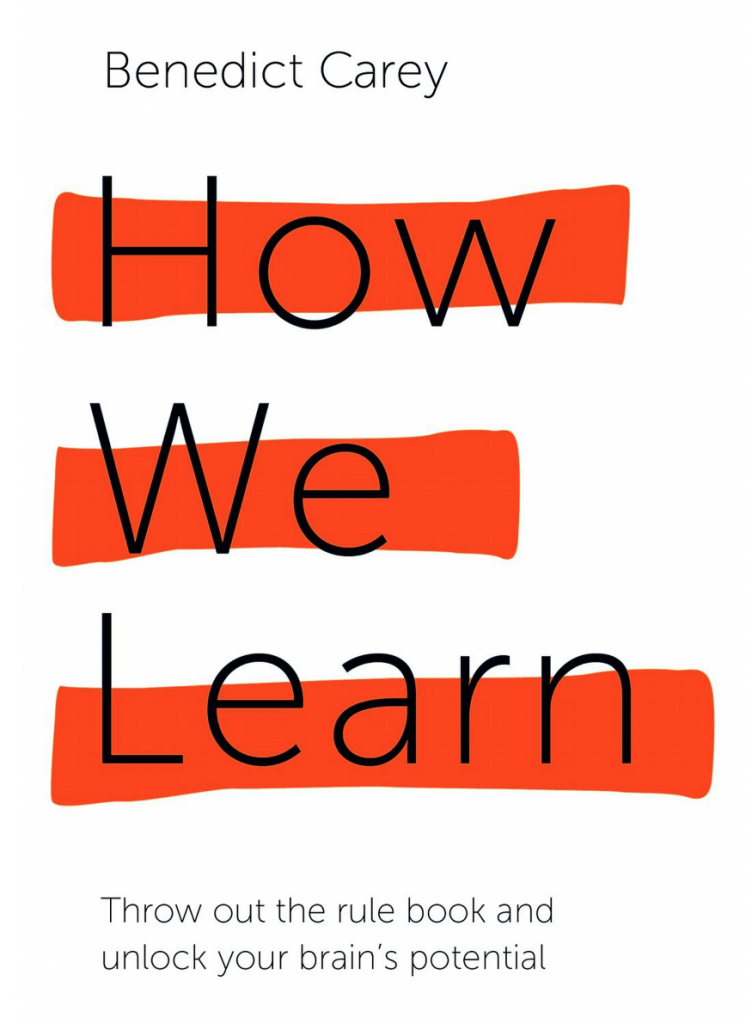I just finished reading the book, “How We Learn” by Benedict Carey.
 This book has been on my radar for a while. Ever since I’ve become an online teacher of sorts, I’ve realized that my job isn’t only to share information. It’s also to make it EASY to learn that information.
This book has been on my radar for a while. Ever since I’ve become an online teacher of sorts, I’ve realized that my job isn’t only to share information. It’s also to make it EASY to learn that information.
As a teacher, I’m responsible for leading students towards a goal and helping them retain as much information as possible so that they can transform their life!
I had a few good takeaways from this book. I’ll share some of those below. To help myself (and you), I’ve also put together a few practical ways that you can apply these strategies to your own life.
If you wanna check out the book, I’ll link ya down below!
How We Learn: The Surprising Truth About When, Where, and Why It Happens
I’d love to hear what you thought of the book. Leave a comment down below.
My Major Takeaways
- Testing and quizzes cause anxiety in our current school system. Instead, they should be used to aid comprehension, not as an evaluation tool.
- You should take a test before you learn something to prime your brain. You’ll focus on the questions you got wrong as you learn the material.
- Don’t just passively read or look over information when you’re studying for an exam. This leads to informational fluidity. It leads you to believe you know more than you do.
- When you work harder to remember something, you strengthen the connection.
- Take out a blank sheet of paper and write down everything you remember. Helps to strengthen the connections and shows you what you don’t know.
- Studying with music and in different places can help memory.
- Cues prompt and unlock memories.
- Sleep helps with memory storage, both for physical motor skills and recall. Wake up later for better motor memory.
- Recall and testing over time will strengthen memory vs. all at once .
- Teaching something to someone helps you learn something.
- Mixing up helps you discern differences. Also helps motor coordination rather than just trying one thing over and over again.
- Airplane gauges -> what it means in a situation.
How to Apply These Techniques
There are a lot of techniques that are mentioned in the book. I think when I read psychology books, it’s very easy to get wrapped up in new discoveries or research. I have to remember to stay practical and think of how this information can apply to my own life.
When I’m trying to learn something new, I can do the following to aid with my overall learning speed.
- Teach about the topic I’m learning to help learn it better.
- Quiz myself throughout the process using a blank sheet of paper to see what I’m remembering and what I’m fuzzy on.
- Quizzing myself over time to keep the memory relevant.
- Setting up cues that I can use to help recall other memories.
There were tons more I learned from this book, so I’d go check it out!
How We Learn: The Surprising Truth About When, Where, and Why It Happens
I’ll probably be sharing more of my findings on my YouTube channel.
